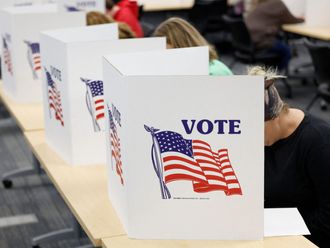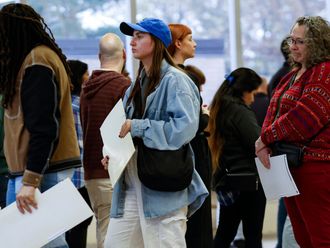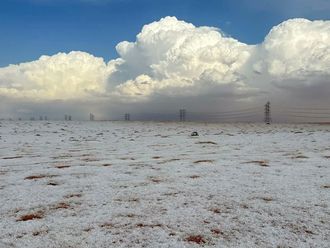New Orleans: The Gulf of Mexico oil spill has done untold damage to the environment and the latest casualties are birds.
Biologists say oil has smeared at least 300 - 400 pelicans, as well as hundreds of terns, in the largest seabird nesting area along the Louisiana coast.
It appears that the negative impact of the spill in relation to birds, has been significantly underestimated.
The government has so far counted only oiled birds, collected for rehabilitation or those found dead, when quantifying the effect. But oiled birds in the many nesting areas that dot the Gulf coast have been typically left out.
Researchers from the Cornell Laboratory of Ornithology said on Wednesday they’d spotted oiled pelicans on Raccoon Island over the past few days. This strip of land lines the Gulf coast outside the state's coastal marshes and an estimated 10,000 birds nest on the island. Yet US Fish and Wildlife Service biologist Lisa Williams says state and federal observers have documented only 68 oiled pelicans in this area.
Biologist Marc Dantzker from Cornell, one of America's premier institutions for bird research, says about 30 to 40 of the pelicans spotted by his group were oiled "head-to-tail." Many more had visible blotches of oil on their feathers. Dead birds have been found too, although there are no official figures released yet.
"This is a major oiling event of an incredibly important seabird colony," Dantzker says. "Many of these birds will be dead soon - within weeks and months. These blotches are deadly."
Even a small amount of oil can kill birds because it hampers their ability to regulate their body temperature.
The Raccoon Island colony was established by the state in the 1980’s and has in particular worked hard to save the endangered brown pelicans.
But its attempts have been severely hampered by the BP oil spill and with millions of gallons of crude still at sea, the area could be hit again.
"This is not like Exxon Valdez where you had tens of thousands of birds killed all at once," said Ken Rosenberg, Director of Conservation Science at the Cornell laboratory. "It's more insidious because it is literally happening in waves and it's happening over and over again as the birds are moving around."
Across the Gulf, roughly 3,000 killed or oil-covered birds have been collected by wildlife agencies since BP's Deepwater Horizon drilling rig exploded and sank on April 20.












